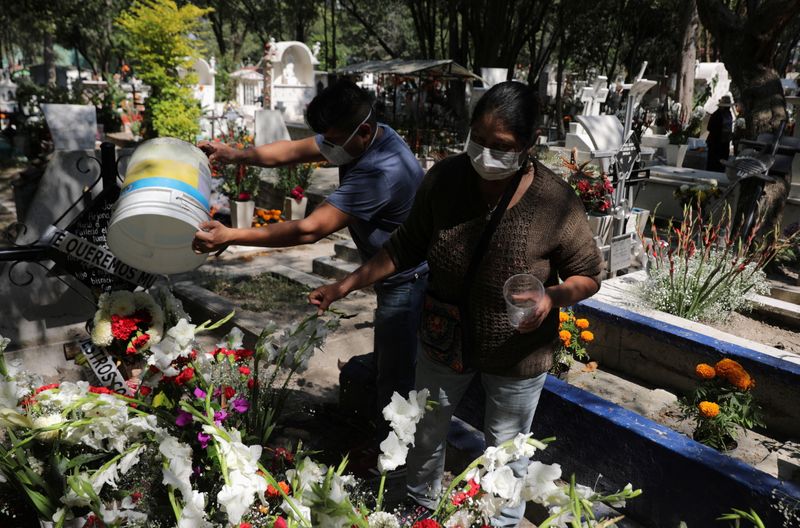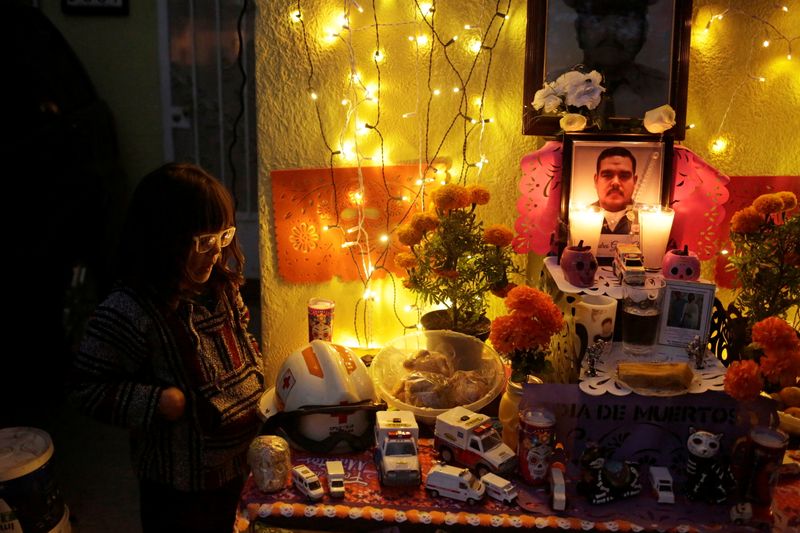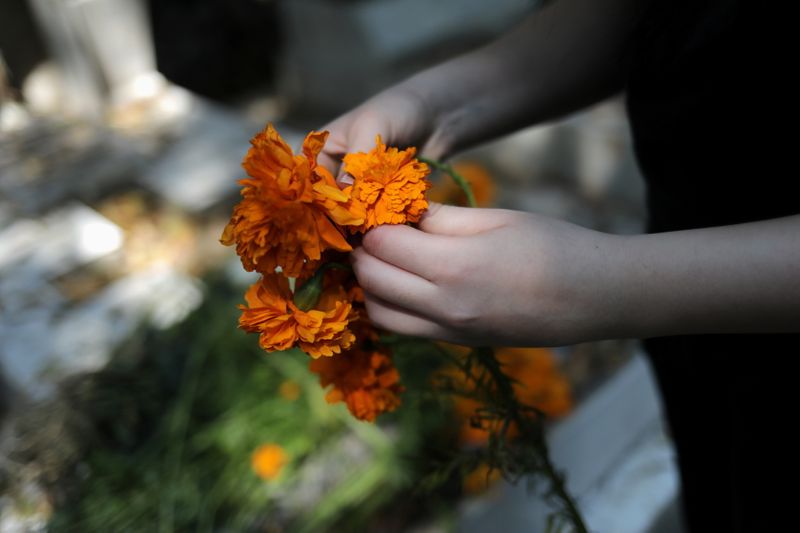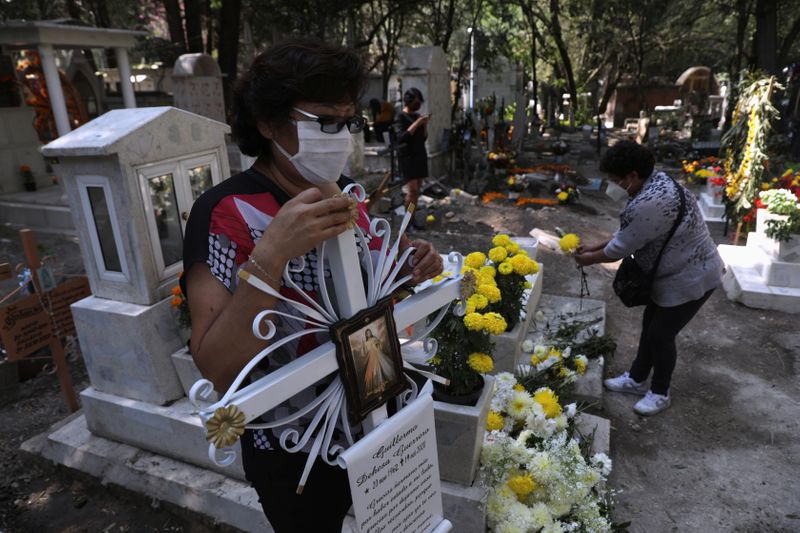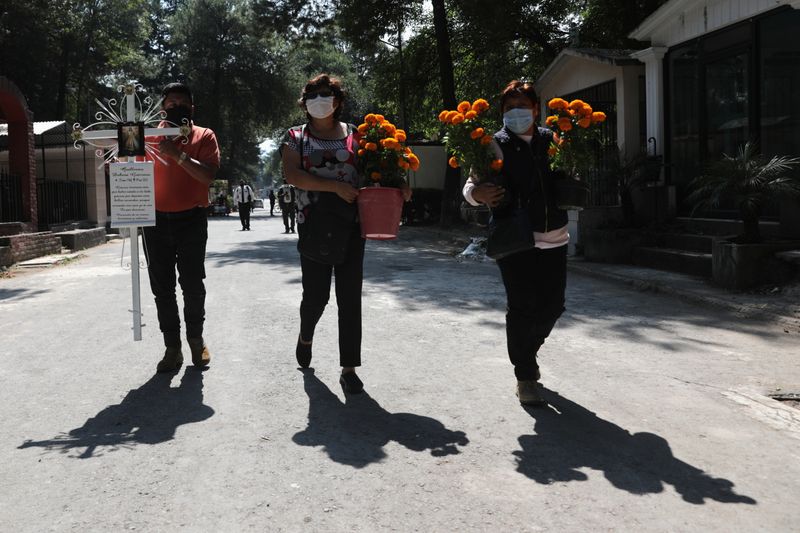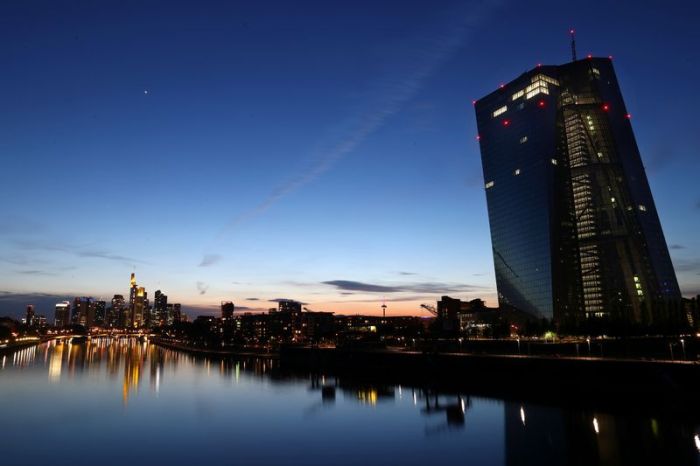MEXICO CITY (Reuters) – Mexicans this year paid their respects early to departed loved-ones in the capital city, where the coronavirus pandemic will cast a pall over cemeteries usually resplendent with color and light during the Nov. 1-2 Day of the Dead celebrations.
The festive tradition typically draws thousands of people to burial grounds and public plazas across Mexico, many dressed as skeletons, to picnic at gravesides and decorate altars with sugar skulls and photos of dead friends and relatives.
But in a bid to contain the spread of the coronavirus, city authorities have reluctantly ordered cemeteries to stay closed for Day of the Dead this year, prompting Mexicans to file out early.
At the Xilotepec Pantheon in southeastern Mexico City, Maura Medina polished a crucifix adorning the tomb of her husband, who died last December. Their two daughters planted bright golden marigolds, the holiday’s traditional flower.
“I’m glad I came to see him,” said the elder Medina. “Now I feel very much at peace.”
Only three people per family may enter the cemetery, where signs warn: “Caution, you are entering a high contagion zone.”
Nearby, a man placed marigolds in the shape of a cross atop a grave, while others remembering the dead raked away weeds and leaves, cleaned tombs and watered flowers.
Mexico City Mayor Claudia Sheinbaum, who tested positive for COVID-19 this week, urged the public to mark Day of the Dead at home, and stay away from the capital’s 120 cemeteries.
“Let’s not lower our guard,” she wrote on Twitter.
Mexico has the world’s fourth highest official death toll from COVID-19, with over 90,000 fatalities.
Adrian Velasco, who went to the final resting place of his grandparents, was grateful he could visit ahead of time.
“It’s good they’ve let us come to leave our flowers and plants,” he said. “And above all, to be with our dead for a day.”
(Writing by Ana Isabel Martinez and Daina Beth Solomon, Editing by Rosalba O’Brien)

